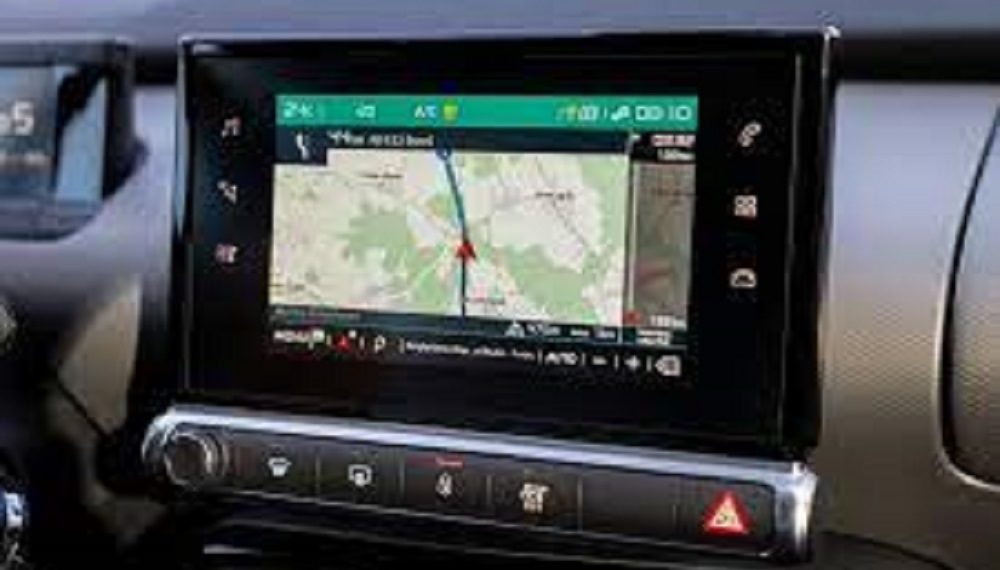If your car GPS shows wrong location, it can be a disconcerting and frustrating experience, especially if you’re relying on it to navigate to a new destination. This guide aims to provide you with clear and practical solutions to correct this problem. No need to be a tech guru; follow these simple steps to get back on the right path.

Understanding Why Your Car GPS Shows Wrong Location
Navigational inaccuracies in your car GPS can be perplexing. Several underlying reasons might be responsible for such discrepancies. The most common causes include outdated maps, interference with satellite connections, or inadvertent changes in system settings.
While satellite-based GPS systems are highly accurate, terrestrial obstructions like tall buildings, trees, or even atmospheric conditions can affect the signals.
Furthermore, if the stored map data is not up-to-date, it might not recognize newly constructed roads or changes in road layouts. Also, system settings, if not configured correctly, can misguide the GPS.
Click here for more articles like this – GPS Problems: Your Complete Guide to Common Issues and Solutions
Checking for Software Updates
One of the primary reasons a GPS might indicate an incorrect location is the use of outdated maps. Regularly updating the software ensures accuracy. Here’s a step-by-step guide to updating your maps:
- Begin by navigating to the settings on your GPS system.
- Locate and choose the ‘Update Maps’ option or any other label indicating a map update.
- The system might require an internet connection for the update. Ensure a stable connection, then follow the on-screen instructions meticulously to finish the update. This might involve accepting terms, selecting specific regions, or even restarting your GPS system post-update.
Re-calibrating the GPS
Occasionally, if your car GPS showcases an incorrect location, a simple recalibration can be a solution. Recalibration adjusts the system’s internal mechanisms to achieve better accuracy. Here’s how you can recalibrate:
- Head over to the settings on your GPS.
- Search for an option labeled ‘Calibration’ or a similar term.
- Upon selection, the system may prompt you to perform certain actions like driving in a circle. Adhere to these instructions for a successful recalibration.
Verifying GPS Settings
Another plausible reason for navigation inaccuracies is improperly configured settings. Ensuring the following settings are correct can help:
- Ensure that location settings are activated. This allows the device to communicate with satellites for positioning.
- Verify that the correct region or country is selected. An incorrect region might lead the GPS to use a wrong set of maps.
Contacting Customer Support
If you’ve exhausted the aforementioned steps and the problem persists, it’s advisable to contact the manufacturer’s customer support. They possess the tools and expertise to diagnose deeper issues and might offer solutions or updates not publicly available.
Maintenance and Periodic Checks
To ensure that your car GPS functions optimally, it’s essential to perform regular maintenance and periodic checks. Dust, dirt, and debris on the GPS screen or the external antenna can sometimes interfere with its operation.
By regularly cleaning your device and ensuring that it’s free from physical obstructions, you can prevent many common issues. It’s also beneficial to periodically review and purge unnecessary data, such as old destinations or saved routes, to keep the system running smoothly.
External Factors Influencing GPS Accuracy
It’s important to recognize that sometimes the GPS inaccuracies are influenced by external factors beyond your control. Solar flares, for instance, can disrupt satellite communications, causing temporary glitches in GPS functionalities.
Similarly, traveling in regions with dense foliage, tunnels, or urban canyons created by skyscrapers can result in a weak GPS signal. Being aware of these limitations can help set realistic expectations and guide you in seeking alternative navigation methods when needed.
Conclusion
A malfunctioning car GPS can be more than just an annoyance; it can potentially divert you from your intended route or lead you to unfamiliar territories. By implementing the suggestions above, you can greatly enhance the precision of your navigation system and ensure smoother journeys. Here’s to clear directions and safe travels!
